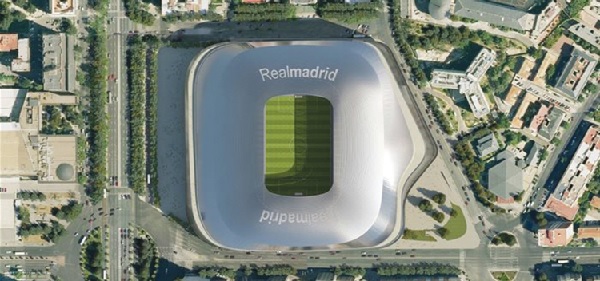Real Madrid’s Renovated Stadium Prepares for Taylor Swift Amidst Fresh Corruption Accusations
After a resounding approval of a €370m debt plan by the Real Madrid board of directors for additional renovations on the iconic Santiago Bernabéu stadium, controversy has emerged surrounding the parking project linked to the developments. The Madrid Council is now facing accusations of improper processes as the project becomes the subject of legal challenges and environmental concerns.
Opposition from a local union has led to two complaints being filed in Madrid courts, questioning the lack of security and environmental impact assessments for the underground parking project. These complaints also highlight a perceived absence of community benefits, suggesting a possible misuse of public funds to benefit private entities, particularly Real Madrid.
Further complicating the situation, a fourth legal complaint has been lodged with the European Commission, claiming non-compliance with European environmental policies. The complainants argue that the project will escalate traffic issues and lead to the removal of 92 trees in the area, sparking environmental and sustainability concerns.
In response to the mounting criticism, Deputy Mayor Inmaculada Sanz has stood by the project, emphasizing its potential to enhance mobility and quality of life in the vicinity. She asserts that all planning procedures have adhered to regulations and highlights the inclusion of 547 parking spaces for residents and dedicated underground platforms for bus stops as indicators of community benefits, despite the displacement of 600 existing parking spots.
The ambitious project includes the construction of an underground car park with a direct tunnel to the stadium, as well as the closure of two public roads. The total cost to the Madrid Council is estimated at €11m, with the management of the car park set to be leased to Real Madrid Estadio, a subsidiary of the football club, for a duration of 40 years. Interestingly, Real Madrid Estadio emerged as the sole bidder for the lease, raising questions about the transparency and competitiveness of the bidding process.
The Santiago Bernabéu stadium, a revered venue in the world of sports and entertainment, has undergone numerous transformations since its establishment in 1947. The latest round of renovations, initiated in 2019, aims to provide the stadium with a modern and cohesive appearance, showcasing a new louvred steel facade designed by architectural firms L35, Ribas & Ribas, and GMP Architecten.
Notable features of the renovation project include a retractable roof, a terrace encircling the stadium atop the stands, and a state-of-the-art pitch removal and storage system. The retractable pitch, tailored for hosting large-scale events, will be housed across six underground levels and equipped with advanced irrigation and lighting systems to uphold the turf’s quality.
Upon completion, the stadium’s capacity is set to increase from 81,000 to 85,000 spectators, although the inaugural match saw only a fraction of that number with over 66,000 attendees. Real Madrid played its first home game at the rejuvenated venue in September, marking a milestone in the ongoing renovation process.
With a target deadline of May 2024, the rush to finalize the renovations has intensified following delays caused by the COVID-19 pandemic. The eagerly anticipated event for the completion of the stadium is the performance by global superstar Taylor Swift, slated to be the first artist to take the stage at the revamped Santiago Bernabéu.
 Guest blog post are available on our website for only 5 dollar!
Guest blog post are available on our website for only 5 dollar!






